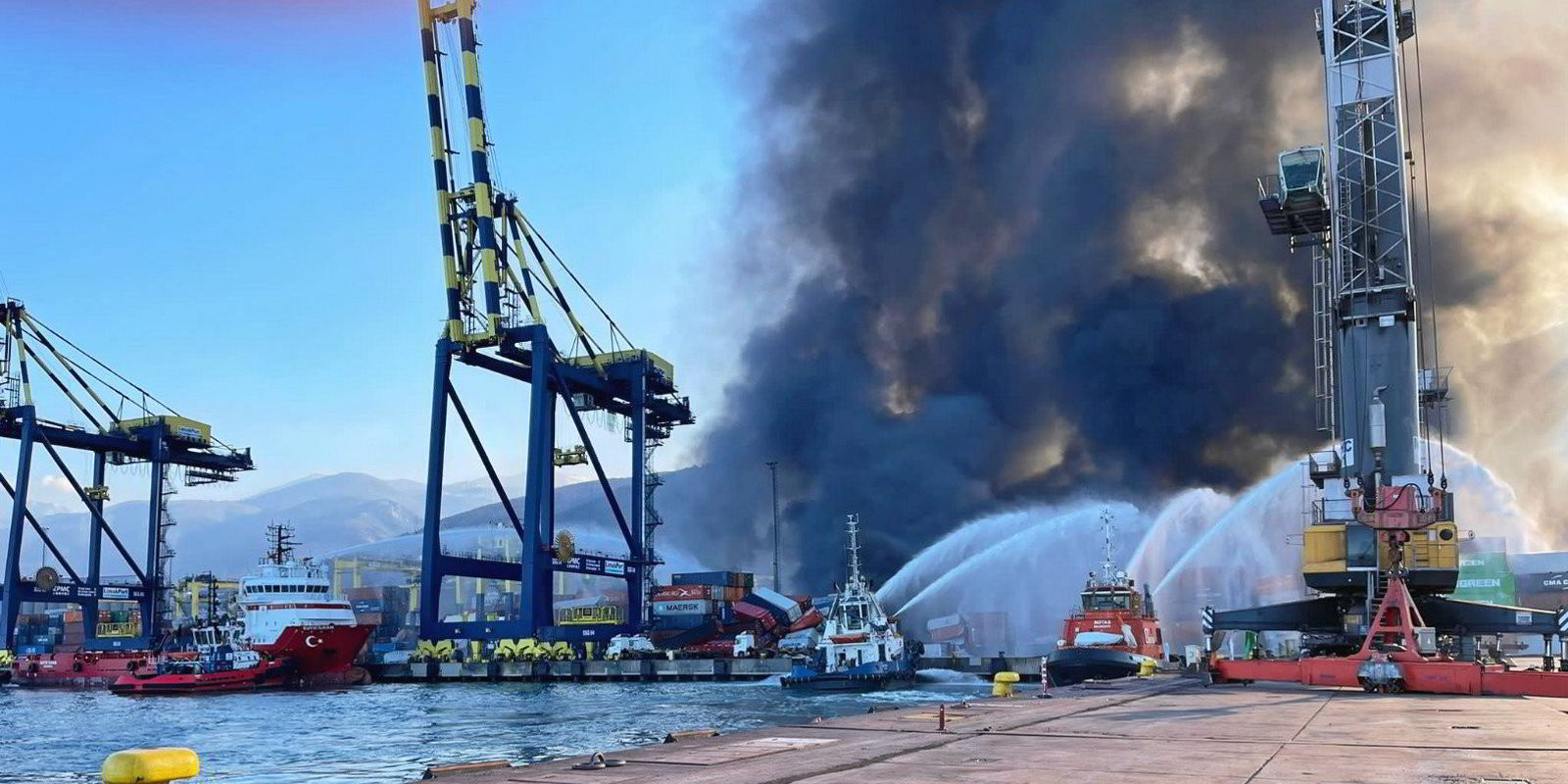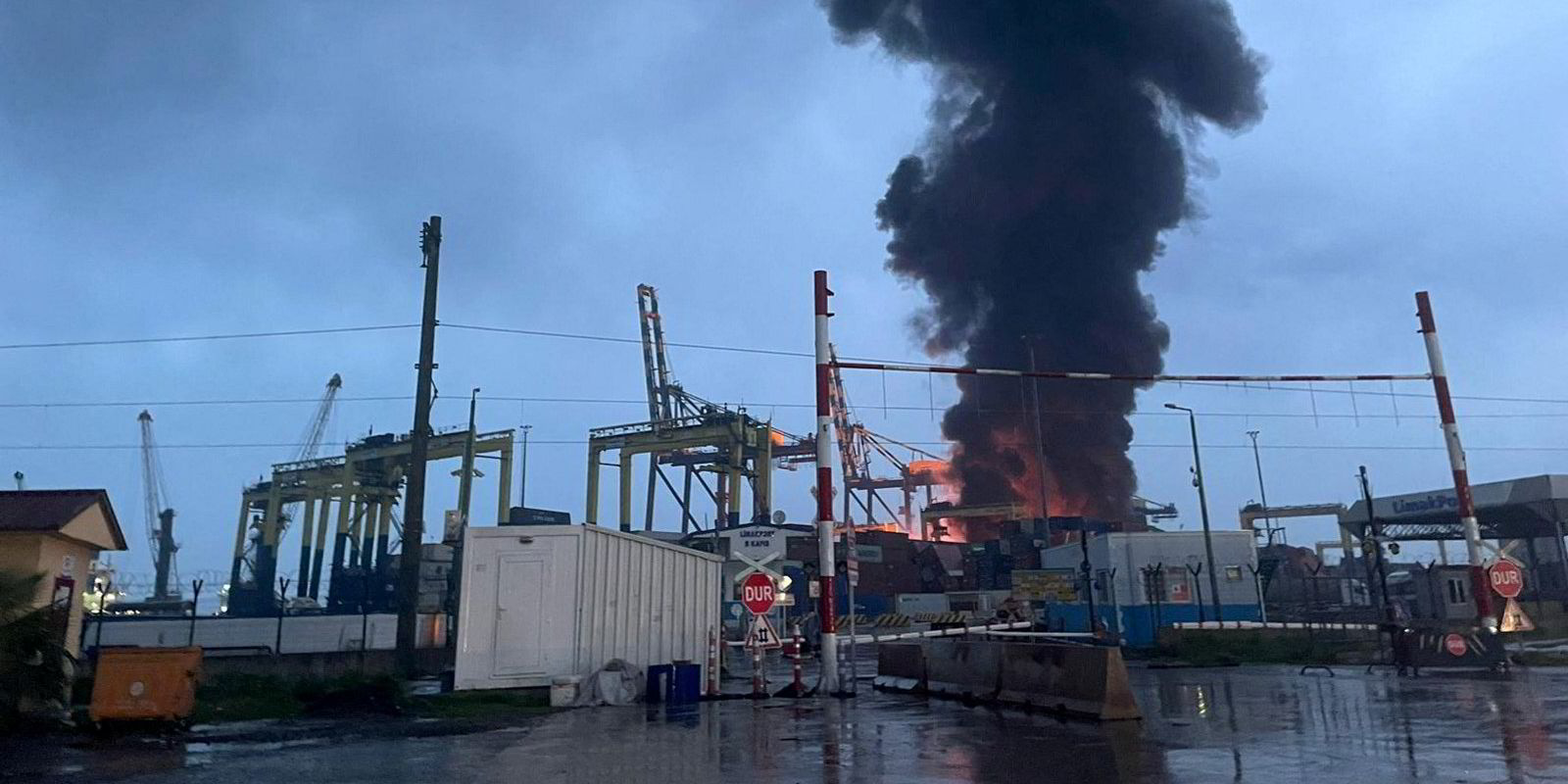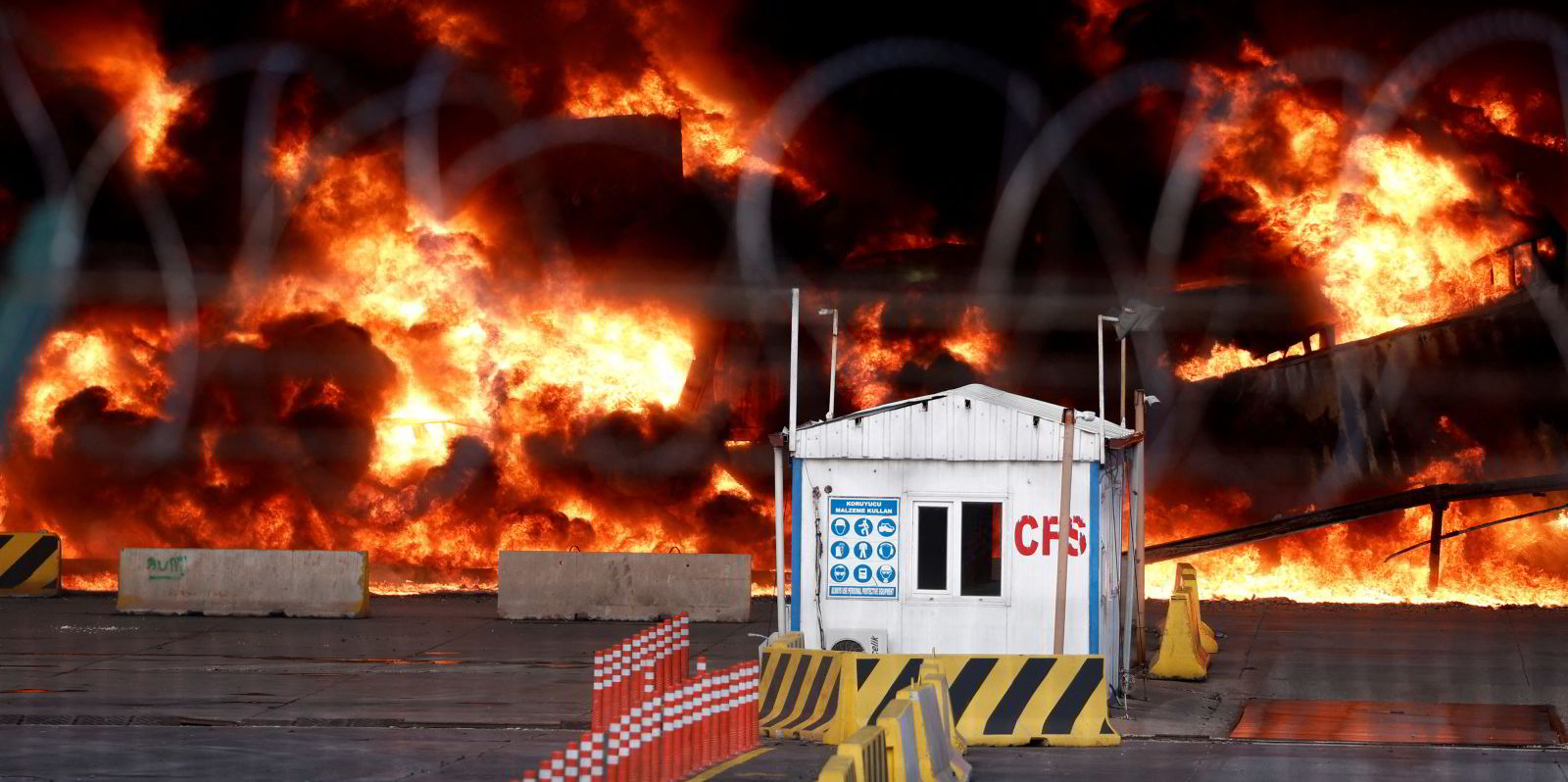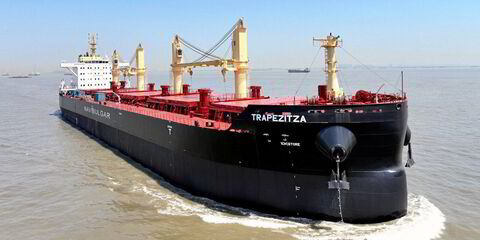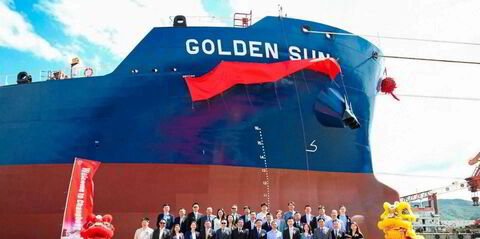Two days after a devastating earthquake put the Turkish port of Iskenderun out of service, authorities announced on Wednesday they at least managed to contain a fire engulfing its container dock.
It took a concerted effort by firefighters on foot, in ships or from helicopters to bring the flames “under control”, the general directorate of shipping at Turkey’s transport minister tweeted.
The terminal, one of the biggest container terminals in the Eastern Mediterranean operated by Turkey’s Limak Group, has suffered such structural damage that it remains out of bounds for traffic.
“Ship handling services cannot be provided at this port,” the ministry added, inviting waiting vessels to head to other nearby ports in the Gulf of Alexandretta Gulf in southeast Turkey.
“There are no hurdles to operations at other port facilities in the Gulf,” the ministry said.
Liner operators have already begun diverting services away from Iskenderun, after the earthquake on the night of 6 February killed more than 9,000 people in Turkey and neighbouring Syria.
Turkish authorities shut down the port immediately after initial inspections showed docks collapsing.
A day later, AP Moller-Maersk said on and Hapag-Lloyd are redirecting shipments to nearby hubs or transshipment ports.
It remains unclear when the Iskenderun port will see a return to normal operations.
Meanwhile, seaborne oil traffic in the nearby port of Ceyhan resumed on Wednesday, after Turkish energy company Botas briefly shut down a key pipeline from the Caspian sea.
Ceyhan accounts for 2.4% of total global seaborne crude oil exports, according to Banchero Costa.
Precautionary inspections carried out after the earthquake confirmed initial findings on Monday that the pipeline leading to the terminal suffered no damages.
The same, however, can not be said about natural gas network in the area, with video footage showing pipelines exploding and Botas halting supply while repairing the network.
This stands to affect the operations of an ultra-modern floating storage and regasification (FSRU) unit nearby.
The 170,000-cbm Ertugrul Gazi (built 2021) is berthed at Doryol in Turkey’s southern province of Hatay, close to the Syrian border.
Botas, which operates the Ertugrul Gazi, didn’t respond to a request on Monday to comment specifically on the FSRU’s operations.
